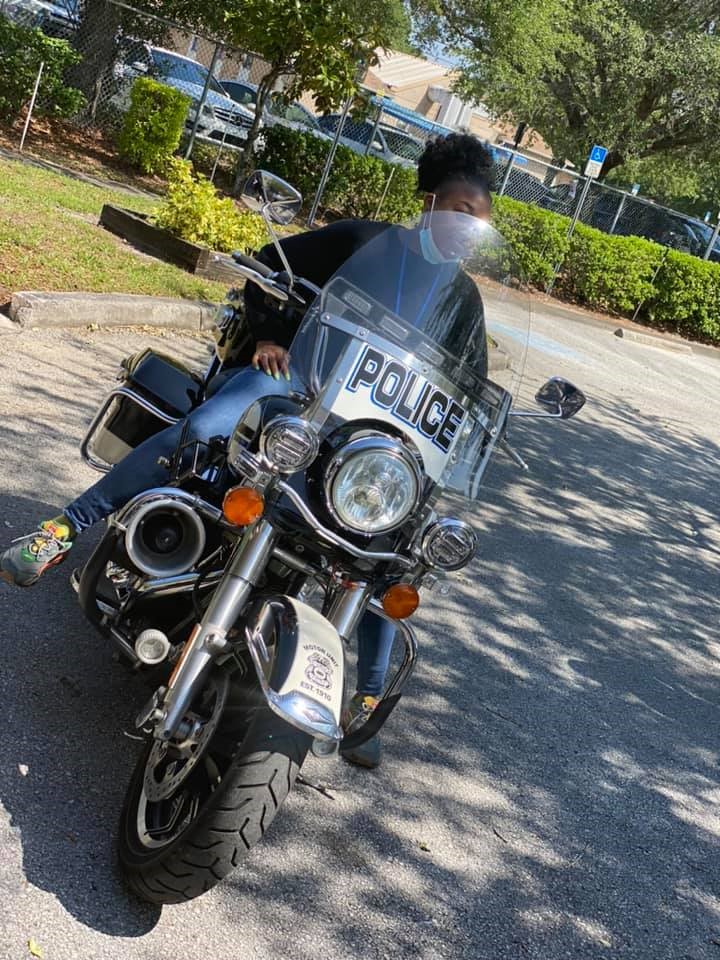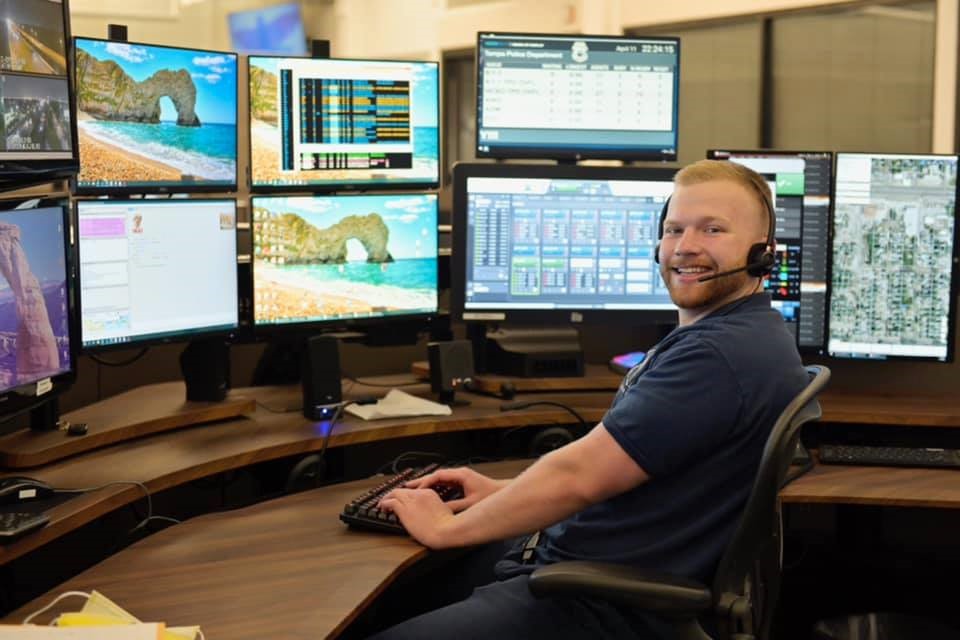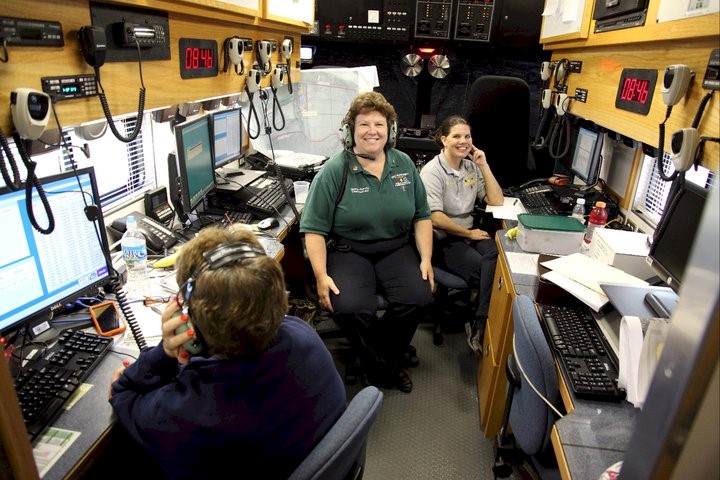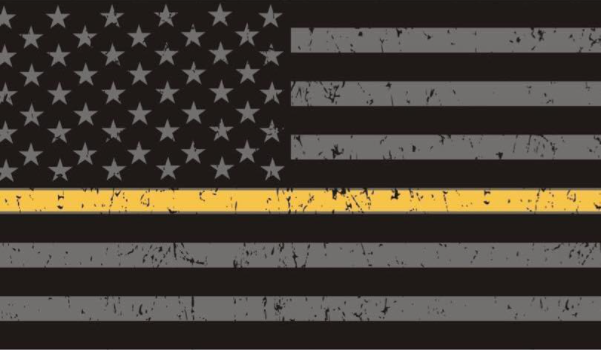
Traditionally, emergency operations centers are staffed by those who answer calls for help and are the initial contacts in the hierarchy of first responders. These highly trained professionals receive calls for service and set in motion public safety resources to come to the aid of citizens using the 9-1-1 system or the non-emergency lines.
Integral to the mobilization of police response to emergency and non-emergency calls, public safety dispatchers serve as triage agents assessing the lineage of elements required to optimally serve and protect the citizenry—the pipeline of public safety concepts starts with the valve-monitoring assets otherwise known as dispatchers.
Touted as “headset heroes” because they can achieve much and score life-saving feats via electronic listening devices tethered to their heads and linked to telephone banks, simultaneously typing information provided by Q&A sessions when timing is of the essence, these purveyors of humanitarian aid epitomize unsung heroes—always heard but hardly ever seen, with rare glimpses afforded by the annual curtain-peeling we call National Public Safety Telecommunications Week.
Like many others aspiring to sworn law enforcement, I started my police career as an emergency operations center dispatcher (officially titled a communications officer) and, albeit super stressful, was unwittingly fortified by the internal operations of what helps a police department pulse and meet the public’s needs, both urgent and non-exigent.
The shifts are undeniably emotionally draining, with the relatively chronic flow of problems of others blasting the ears and slowly chewing away at the human psyche. Not many people know what transpires in a demographic like public safety operators; they have exposure to the entire jurisdiction and electronically chronicle human depravity, which can often materialize negatively if not processed and filtered promptly. Not an easy thing to accomplish.
It took mere months before I started feeling the weight of the world (exponential woes encountered by citizens in my jurisdiction); admittedly, I didn’t think I was going to make it. I questioned my abilities (non-confident in meeting myriad demands), had a few candid chats with my supervisors, and always gauged how my work would impact my family.
Ultimately, I stayed the course, learned lots about humanity and myself, and after four years in the comm center, completed the police academy to subsequently swear my police officer’s oath and work the street beat. In context, I had the preview of a police dispatcher receiving calls for service and being sent to mitigate whatever problems citizens were confronting and needing support.
One method to cross-train police assets in everyone’s role so that the mission is fulfilled optimally is duty sharing. For public safety operators to understand what goes on at scenes requiring police service, my agency scheduled deployments of dispatchers to varying street units, most commonly riding with law enforcement officers assigned to the Patrol division (the backbone), where the greatest exposure to real-life police work is achieved.
Many law enforcement agencies require their public safety dispatchers to do ride-alongs with sworn staff. Conversely, cop shops also entail sworn staff to spend time in the comm center, including answering the phone liens and dispatching assets. It becomes a mutual understanding of each other’s roles which equates to professional service delivery for the public.
To recognize their police dispatchers —considered by cops to be direct lifelines while perils are handled on the streets— the Tampa Police Department is coordinating various specialty units outside the emergency operations center each day throughout Public Safety Telecommunications Week, actually slipping some of these headset heroes into police dive team wetsuits and saddling others upon a police motorcycle.

(Photo courtesy of Tammie Bishop, police communications officer and photographer with the Tampa Police Department.)
Longevity
As one may suspect, burnout is common in public safety. And whereas a beat cop handles one call at a time, dispatchers closely mimic an octopus…exuding inherent ambidexterity to process multiple matters simultaneously. The stress is enormous; frankly, it is a brave undertaking on behalf of strangers, which means sworn and non-sworn police personnel can relate so well to each other’s unique role, multifaceted skillsets, and concurrent duties, all of which are typically displayed among a bevy of computer screens requiring vigilance, pivoting attention, and acuity akin to an owl’s.

(Tampa Police Communications Technician A. Petit. Photo courtesy of Tammie Bishop, Tampa Police Department.)
Two-year longevity was the average back in my time as a police communications officer; at least that was what I was candidly told by my supervisor overseeing the police communications center. Although I knew I wanted the job, in retrospect I never really pondered being hired by an employer who was forthrightly telling me that it is expected I will part ways sooner than later. Interesting nature of the business and the beast gradually decomposing noble listeners heeding calls for help. What a stark reality…which is one of many reasons why we justly herald these selfless public safety professionals.
However, decomposing probabilities are countered with rituals compensating for emotional pressures. The following staples often help mitigation: proper nutrition; adequate exercise; steady diet of sleep; immersing in personal passions. My comm center installed a salt-water aquarium in view of the dispatchers, and it helped sooth the psyche after frantic callers screaming unintelligible vocalization filled the ears of call-takers.
There’s good reason why therapy dogs are becoming more common in comm centers across the country. The Journal of Emergency Dispatch published an article on this topic.
And the call volume is often staggering. As the Lee County, Florida sheriff’s office reported yesterday, “Last year, our agency received over 750,000 calls, and already this year, we have received over 235,000. [Public Safety Telecommunicators] are oftentimes the first line of communication between you and first responders. Their vital role in keeping you safe doesn’t go unnoticed.”
Despite the notorious rate of burnout, some have made a career of dispatching emergency services personnel and saving lives by answering the phone lines, many entailing utterly distraught speakers on the other end of the line, whereby experience from many years of being in that proverbial hot seat results in the commodity of patience enabling deciphering of gibberish born of shock and dismay.
As progressive policing persisted while budgets were statically subjected to doing more with less, agencies started looking at consolidation principles. My agency was among the cop shops revamping; the Emergency Medical Dispatching (EMD) concept was also pinned on the police dispatchers’ to-do list of duties/responsibilities, making an already demanding job even more pressurized.
Think about it: The longevity factor may have been leveraged by the inclusion of what is known as EMD…whereby pioneers in emergency operations successes levied consolidation of formerly separate police, fire, and medical response dispatch services. The following brief video illustrates a day in the life of a multitasking telecommunicator:
Similarly, some emergency communications operators garner additional training and specialize in facilitating dialogue between public safety field units engaged in unique, often large-scale circumstances.
Tampa Police Communications Technician A. Petit (pictured above) is also designated as a “Tactical Dispatcher,” meaning he is a member of a “12-person specialized team which works large crowd events throughout the city. These events include those like the Super Bowl and Tampa’s annual Gasparilla Parades. Their team also works calls which require specialized police responses such as SWAT [and Bomb Squad] callouts or a tactical response plan,” wrote a Tampa police spokesperson.
One of Mr. Petit’s colleagues with tons of tenure and special classification is Communications Technician and Tactical Dispatcher E. Denny who has “worked both Super Bowls, the RNC, 2020 protests, all Gasparilla events, Sunset Music fest, MLK parades, St. Patrick’s Day parades…you name it, she has probably worked one or ten.”
This engenders police mobile command centers which house public safety communicators, police executives, fire department chiefs, and any manner of emergency operations authorities, all situated to sync and solve major problems and/or handle big events.

(Activated police mobile command center housing dispatchers. Photo courtesy of the Prince William County Police Department.)
Often stated, the job is not for everyone, has a high turnover rate, and is consistently innovating to stabilize a profession chronically consuming life’s largest challenges on behalf of strangers who defer to public safety professionals for salvation.
What we don’t often see are the many occasions whereby communications staff throttle down the many who call 9-1-1 with suicidal ideations. Via EMD, while ambulances are en route thanks to telecommunicators, many babies are born while pre-arrival instructions are provided via phone lines to whoever is on scene with expectant mothers. Same accounting applies to heart attack calls, whereby dispatchers coordinate CPR applications via phone.
As well, one elephant in the room for public safety personnel is when the floor drops out and human nature demands no-room-for-error navigation during diabolic-sounding incidents and crimes against justice.
Via interview with Communications Tech Denny, we are provided the following gravity which underscores our subject matter:
“She has worked with some of the greatest people day in and day out, and she can tell from the sound they make when they inhale over the radio if something is up. She pointed out that hearing the tone of voice of someone you talk to every day suddenly shifts from casual to unnatural screaming for help is one of the most jarring things that won’t ever leave her.” Ominous and eerie total silence by field units exacerbates the dispatcher’s duress.
Punctuating that, internal sway from utter loss is always a potential torpedo to the professional psyche…
Final Call
Although we previously touched upon the expectedly brief longevity for those who step up and fulfill the hugely stressful and continuously demanding public safety role, one other aspect provided by these selfless lot of headset heroes is being in the emotionally emphasized position to broadcast the “Final Call” for their fallen brothers and sisters who, via the job’s implicit/explicit responsibilities, perish after being dispatched to calls for help.
Naturally, no one wants to bear the mental burden of having been the one to dispatch a cop to a call from which he/she is slain in the line of duty. But that stark possibility looms and can easily wreak havoc on a public safety telecommunicator’s mind.
Just imagine a telecommunicator’s heart and soul speaking farewell vernacular for a fallen comrade:
Being a dispatcher in that bittersweet seat is logically the deepest emotional sway one can experience, marking the last time a colleague is mentioned on the radio via using his/her frequency moniker (ie.: 1-Alpha-Charlie-3). Every police funeral for the fallen killed in the line of duty concludes with the Final Call. As everyone departs with their somber thoughts and feelings, public safety dispatchers literally and responsibly resume handling emergency calls for service and the public safety mission.
As alluded to in a previous article published by NPA, Tammie Bishop is a friend of mine who works for the Tampa Police Department as a communications technician as well as a photographer whose talents depict many facets of TPD staff (including the TPD photos herein). If her primary role weren’t enough, Ms. Bishop conducts plenty of voluntary work designing, producing, and marketing items such as t-shirts and challenge coins, from which all proceeds go to families of fallen cops.
Unsung and undaunted by what needs to be done on behalf of others is evident among public safety personnel!
And that, ladies and gentlemen, is the core nature of what it takes to succeed the mission as a public safety telecommunicator, deserving of a celebratory week plus 51 more weeks of deserved recognition.
Underscoring it all, the fine folks who step into emergency operations roles are highlighted not while off duty but while seated and poised in a communications center near you, strangers ready to heed your call and send help.
Via National Public Safety Telecommunications Week, we are reminded that unseen and unsung heroes are one and the same…

(Synonymous with the iconic Thin Blue Line is the Thin Gold Line representing the voices on the other end of the phone activating emergency response services.)
Given the unrelenting noise from those calling to abolish the police, that nitwit thinking means casting aside these lifelines and thus lifesavers.